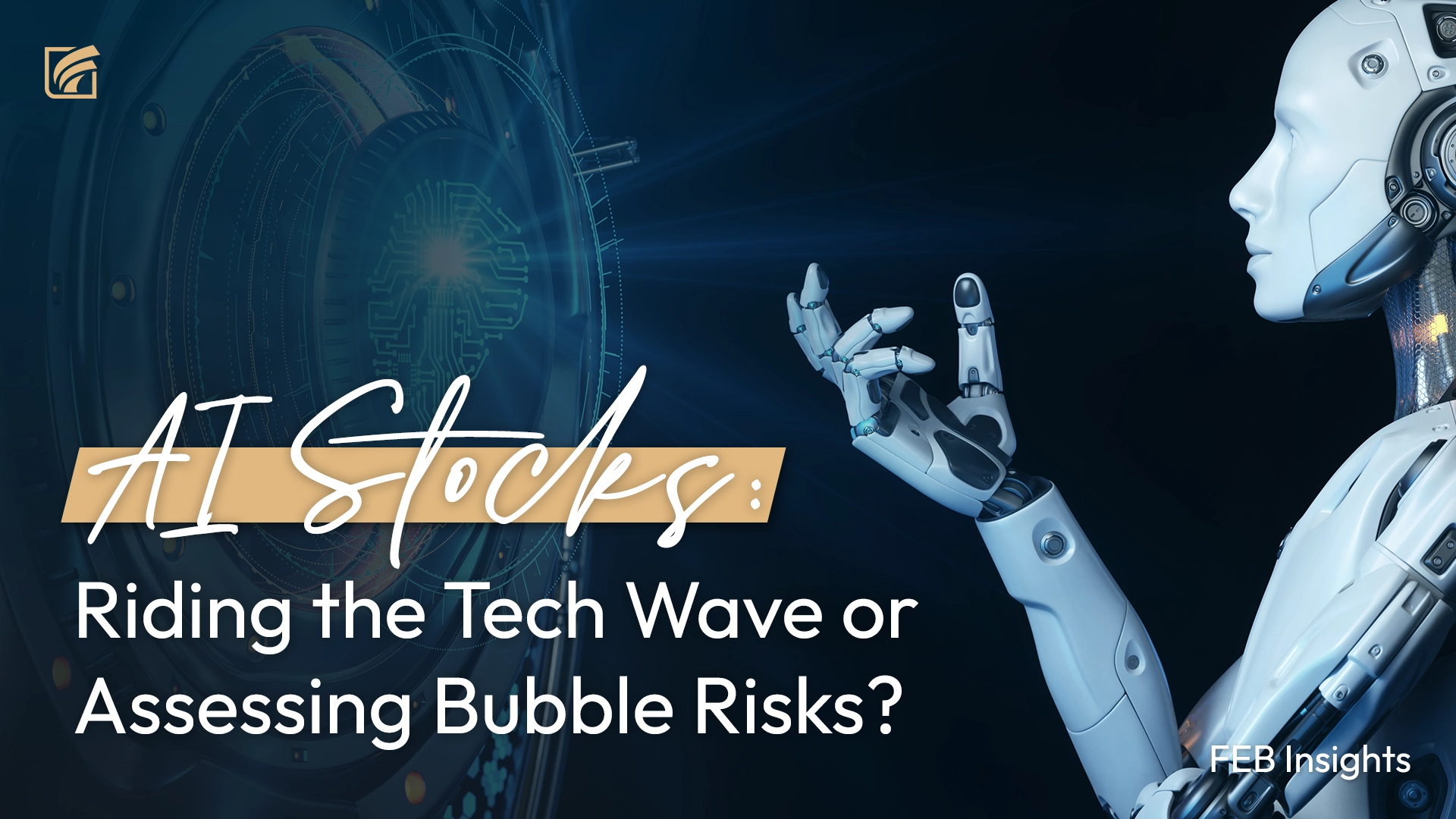In the realm of investing, few trends have ignited as much fervor and debate as the meteoric rise of AI (Artificial Intelligence) stocks. The financial world is contemplating a pivotal question: is this an epochal technological revolution or the ascent of another speculative bubble?
The Thrilling Ride of AI Stocks
Picture this: NVIDIA, a leading AI chip manufacturer, seeing its stock value nearly triple in a matter of months. The Nasdaq-100 index soaring to new heights, driven by tech giants like Microsoft and Google parent Alphabet. It’s an exhilarating journey into uncharted territory, and investors are strapped in, ready for what comes next.
The Mixed Bag of Tech Earnings
Yet, amid the euphoria, a touch of sobriety emerges. Tech earnings, particularly within the AI sector, have proven to be a mixed bag. However, the NASDAQ 100’s resilience, up by an impressive 42.2% in 2023, suggests an enduring appetite for tech-driven investments[1].
The Wisdom of the Experts
In this complex landscape, experts weigh in with insights that demand our attention. Jeremy Siegel, a respected voice from Wharton, opines that the AI surge is firmly rooted in fundamentals, averting the bubble narrative for now[2]. Goldman Sachs analysts concur, emphasizing that the AI hype differs significantly from previous tech bubbles[3].
Balancing on the Edge
But here’s the twist: JPMorgan Chase strategists issue a word of caution. They suggest the potential for an “AI-Driven Bubble” that could eventually burst, leading to significant market repercussions[3].
Perspectives from Visionaries
The perspectives of notable figures add depth to this discourse. Elon Musk, renowned for his pioneering role in companies like Tesla and SpaceX, expresses profound concerns about the risks associated with AI. He believes that unchecked AI development could pose a significant threat to humanity and emphasizes the need for ethical AI applications[4].
In contrast, Alexandr Wang, the CEO and founder of Scale AI, stands as a prominent figure in the AI industry. His company focuses on data annotation, providing crucial support for AI development. Wang envisions AI as a powerful force for positive transformation in various industries, emphasizing the immense potential and economic growth it can bring[5].
The Verdict?
So, are AI stocks riding the crest of a technological wave set to reshape industries, or are they teetering on the brink of a speculative bubble, ready to burst? The verdict is a delicate balance between optimism and caution. On one hand, the remarkable growth of AI-driven companies like NVIDIA and the Nasdaq-100’s resilience in 2023 highlight the transformative potential of AI in various industries. This surge has lured investors seeking substantial gains in this technological wave.
However, history serves as a reminder that rapid valuation increases can precede market corrections. The concerns voiced by financial experts, including JPMorgan Chase strategists, hint at the potential for an AI-driven bubble. It’s a warning against complacency.
In conclusion, the verdict on AI stocks is one that urges investors to approach with vigilance. While the promise of AI is undeniable, it’s a realm where potential gains coexist with potential pitfalls. As investors ride this technological wave, they must stay informed, diversify their portfolios, and maintain a watchful eye, ready to adapt to the dynamic and uncertain landscape ahead.
Did you know? The term “Artificial Intelligence” was first coined by John McCarthy at a Dartmouth College conference in 1956, where visionaries anticipated that machines would possess human-like intelligence within a few years. Although we’re not quite there yet, the recent surge in AI stocks hints at significant progress.
Disclaimer: This article is for informational purposes only and does not constitute financial advice. Investing in stocks carries inherent risks, and it is essential to conduct thorough research and consider your financial goals and risk tolerance before making investment decisions.
At FEB, we understand the ever-evolving landscape of finance and technology. We are committed to providing tailored financial solutions to businesses navigating these dynamic markets. Contact us today to explore how FEB can help your business thrive in an era of technological transformation.






